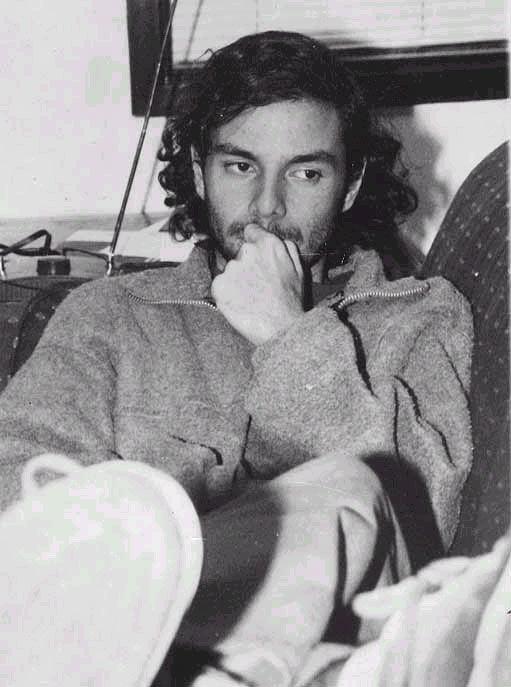This is the second of an ongoing series which seeks to analyze Technician as a publication and its history in LGBTQ activism.
Following the trail from the last of this series, I was directed to NC State alum Richard Morgan, a former staff columnist of Technician, who attended NC State from 1997 to 2001.
Morgan has found success as a freelance writer for several newspapers and magazines after graduating from NC State in 2001.. He came out publicly in an opinion column for Technician about his experience of coming to terms with his sexuality, why he’s coming out and to facilitate communication with straight people.
In the column, Morgan said, “What I would like this column to do is serve as a stepping stone and a building block for communication. There has to be more to gay awareness than shouting ‘I’m here and I’m queer;’ there has to be a follow-up discussion.”
Morgan said at the time he was a student, there was never really any conversations about being gay or gay people.
“[The conversation] was always like safety or of diversity,” Morgan said. “Those are the only things that people sort of mentioned about gay people. It wasn’t like you just heard about a normal sort of guy-next-door gay person. There wasn’t a lot of humanity to it. … If you were gay, it was like that was only a conversation stopper or a very limited conversation starter.”
According to Morgan, it was extremely unheard of, and when people did talk about queerness, it was related to Matthew Shepard and his tragic death. Shepard was a gay college student who was brutally kidnapped and murdered by two men. His death sparked outrage and backlash, spurring the creation of the Matthew Shepard Foundation. In 2009, The Matthew Shepard and James Byrd Jr. Hate Crimes Prevention Act was enacted in Congress by the Obama administration.
Morgan said he was so glad that in his final semester at NC State, he could finally be out. He said the main benefit of his coming out and his column was that students could really see someone who was actively, openly gay. He wanted to emphasize this person is not really different from the person they had known. Morgan also said his motivation was to make the conversation more casual, even if it was with baby steps. He received lots of positive feedback from queer students, despite some backlash.
“One of the things to say about that time period is that not a lot of people had email,” Morgan said. “It wasn’t the kind of casual thing that we have now. There was also no texting and nothing like that. … So it was only physical letters to the editor, or maybe some emails and a lot of the emails that I ended up getting were from gay students who were mostly happy for it.”
Morgan was also a student leader for the Campus Crusade for Christ at the time this column came out. He had experience with missionary work in the past, and he really liked leading students. Morgan ended up stepping down from this position after the column came out. He said he wasn’t bullied or threatened into this by any means, he just didn’t want to be the center of the conversation. He continued attending his Bible study and said they were very accepting, understanding and accommodating. Morgan remained part of their audience, just not as a leader anymore.
During his time as a student, Morgan also said being gay including having to answer explicit and invasive sexual history questions all the time.
“You just had to talk about your sex life in a way that other people didn’t have to do,” Morgan said. “And you had to talk about what you’ve done, who you’ve done it with, what does God think of what you’ve done? What does God think of you?”
Morgan said one of the most frustrating parts of coming out is there’s never a perfect time to do it.
“There’s always this muddiness of people who knew you when you were closeted and then when you’re out,” Morgan said. “I remember how remarkable it felt to move to [Washington] D.C., to work as a congressional reporter. And I remember how it felt to sort of like introduce myself as gay and like, I’ve always been gay to these people.”
Morgan also said coming out is a part of a much larger, meaningful soul-searching process. He regards coming out as almost hatching, it needed to occur for him to be able to come to terms with himself, his wants and his heart.
“You really have to figure out who you are as an essential experience,” Morgan said. “One of the things I’m glad about for coming out is that it sort of accelerated my sense of knowing who I am and how my mind works, how my fears work, how my hopes work and how my heart works.”
To read Richard Morgan’s work, visit his site.













